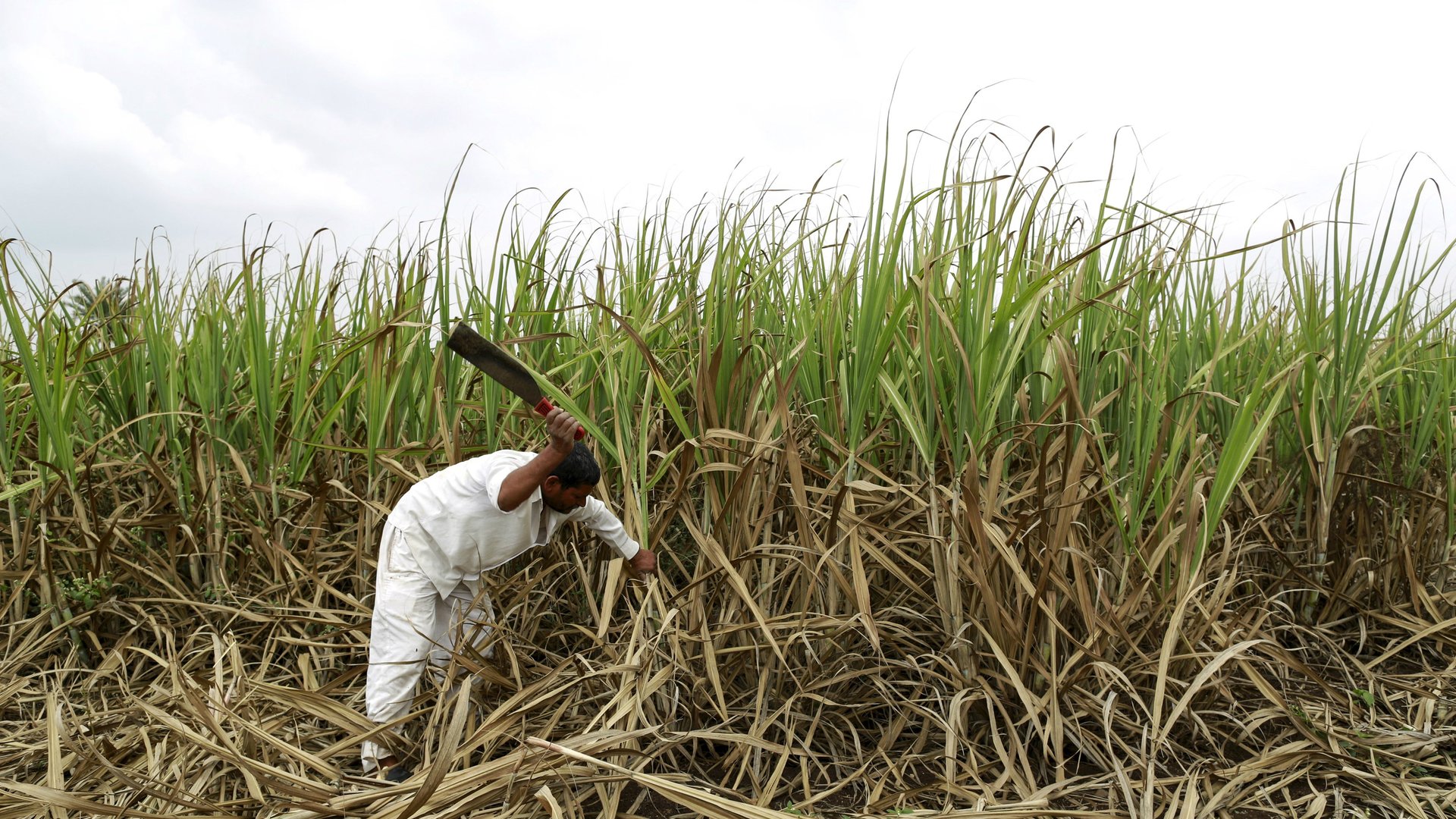How the implosion of Brazil’s economy winds up in your kitchen cabinets
The world has a sweet tooth, and 2016 is shaping up to be a year in which people will actually feel it—thanks to Brazil.


The world has a sweet tooth, and 2016 is shaping up to be a year in which people will actually feel it—thanks to Brazil.
The South American country is the world’s leading producer and exporter of sugar, so when its economy—disrupted by political and economic unrest—took a plunge in 2015, it sent sugar prices off-kilter as global demand for the sweet stuff began outpacing supply.
In 2015, the Brazilian real fell more than 30% against the US dollar, and analysts believe Brazil’s overall economy contracted by 3.5%. The tumbling currency caused domestic sugar prices to rise, and production labor costs to fall. At the same time, the price of global crude oil was also falling.
Unlike in the US, which makes biofuel ethanol out of corn, Brazil uses the sugar it grows. So when global oil prices sank and domestic sugar prices rose, it led to a perfect storm of conditions, incentivizing Brazil to flood the world market with sugar, driving the price down to 10 cents per pound in August 2015, a more than 20% decrease from earlier in the year.
When the real began to rebound, and strengthen against the dollar in February, Brazil slowed the flow of sugar into the world market, which drove the cost of the commodity back up to 15 cents per pound (as of April 1). At the same time, weather forecasters began saying say El Niño would damage sugar crops in Brazil, Thailand and India (each among the top five producing countries), which will likely hit supply levels and drive prices up further. Rabobank in March forecast a global sugar deficit of 6.8 million tons for the year.
“We’re a huge sugar-based diet place,” said Andrew Hecht, an analyst at Carden Capital. “The cost of goods sold goes up for companies manufacturing [food]. The bottom-line is, one way or another, it costs you money when commodities go up. Your grocery bill rises.”
Consumption is rising, in part, because sugar appears in an increasing number of food products. No longer seen as a luxury commodity, its used in virtually all processed foods, as a coating for drug pills and it’s added into fruit juices and breads, among many other things.
So to get close to meeting demand this year, analysts say they’re hoping—seemingly against hope—that Brazil can pull off an unusually productive sugar season.
“If Brazil doesn’t come in with another bumper crop, then sugar could go higher,” Hecht said.